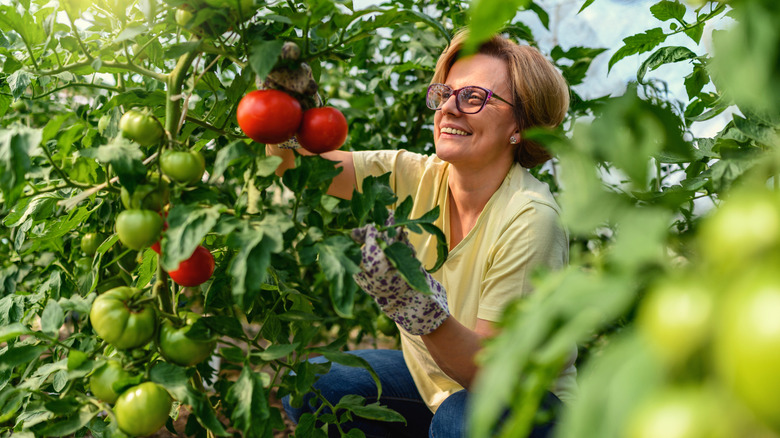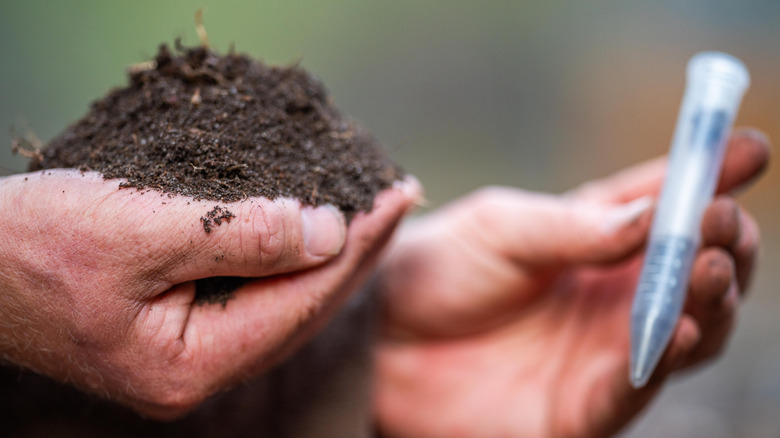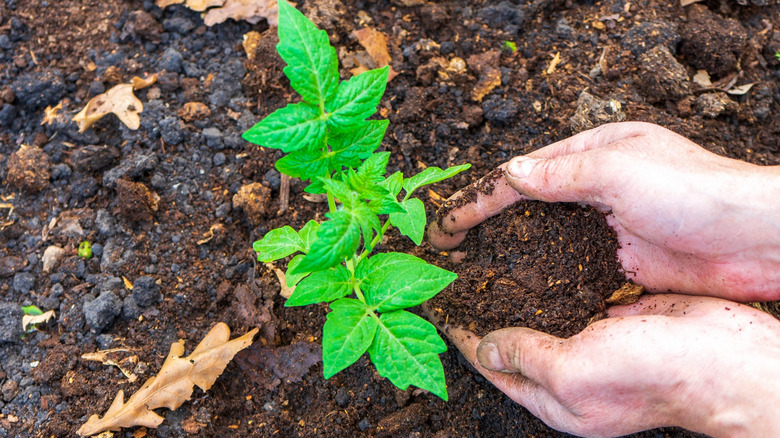The Best Ways To Amend Soil For Healthier Garden Tomato Plants
There's a way you can have a significant impact on your tomato harvest before you even put a single plant in the ground. While many people focus on watering and sunlight, the condition of the soil is one of the most important factors for getting a big crop of flavorful tomatoes. The right soil provides the nutrients and environment for roots to establish themselves, which leads to healthier, more productive plants. Among the top tips for growing the best tomato plants is amending the soil, which involves a few steps.
Amending soil for healthier tomato plants includes testing your soil, adding rich compost with worm castings, incorporating perlite for better aeration, and using mulch to retain moisture and suppress weeds. It's this deliberate, step-by-step approach that transforms basic dirt into the ideal home for your plants. By taking the time to amend the soil, you're supporting the plants and helping them reach their full potential. It starts with understanding what's already in your garden, and then adding what's missing to make it a place where your tomato plants will thrive.
Test your soil and add compost
The first step in creating an ideal environment for your tomato plants is to test the soil. A simple soil test, which can be done by finding an online testing lab or with an at-home kit, provides a detailed breakdown of your soil's pH and nutrient levels. Tomatoes prefer a slightly acidic pH, typically between 6.2 to 6.8. Knowing the pH level prevents you from guessing what to add and helps you select the amendments that will make the biggest difference. Compost, often called black gold, is the single best way to improve any soil type, from clay to sand.
For a new garden, spread a 3 to 4-inch layer of compost over the surface, then mix it into the top 8 to 12 inches of soil. If you have an established garden, add a ¼ to 1-inch layer of compost to the surface each year and work it into the top layer of soil. By adding compost, you can improve the structure of the soil, which allows for better air circulation and water retention. It introduces helpful organisms, including bacteria, fungi, and earthworms, which create a healthy soil ecosystem and help break down nutrients for your plants. Compost also supplies important micronutrients like copper, zinc, and iron that are typically absent in synthetic fertilizers. For a successful growing season, make compost a non-negotiable part of your garden plan.
Consider perlite, worm castings, and mulch
After you've tested the soil and added compost, other amendments can provide an even greater growing boost. If your soil tends to be heavy or compacted, adding perlite is a great option. This mineral, which comes from volcanic glass, is excellent at improving aeration and drainage, preventing root rot and fungal diseases. A healthy root system can absorb water and nutrients, and perlite helps make sure they can spread freely. In the same vein, adding worm castings can supercharge the soil's health. Worm castings, also called vermicompost, are a natural byproduct of earthworms that serve as a fertilizer. You can mix them into your soil before planting or sprinkle a handful around the base of existing plants as a top-dressing.
Finally, don't overlook the benefits of a good mulch. When it comes to the truth about garden mulch, it's more than just a decorative top layer. A 2-inch layer of organic mulch, like straw or shredded leaves, can be placed around your plants after the soil has warmed. Mulch keeps soil cooler on hot days, retains moisture so you don't have to water as frequently, and helps prevent weeds from competing with your tomato plants. It also creates a barrier between leaves and soil, which helps prevent soil-borne diseases from splashing up during watering or rain. A little bit of effort at the beginning of the growing season can result in happy tomato plants and an abundant harvest later.


